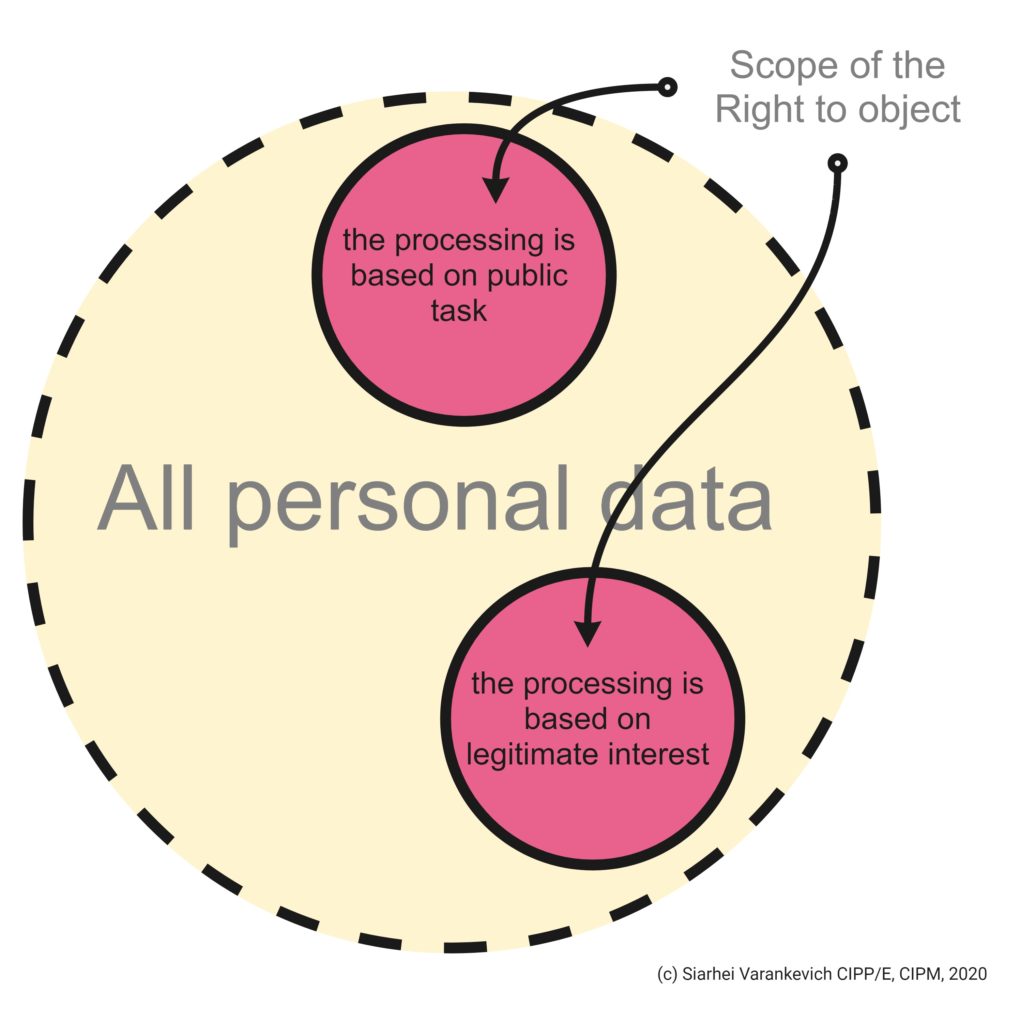(69) kai asmens duomenys galėtų būti teisėtai tvarkomi, kadangi duomenis tvarkyti būtina siekiant atlikti užduotį, vykdomą dėl viešojo intereso arba vykdant duomenų valdytojui pavestas viešosios valdžios funkcijas, arba vadovaujantis duomenų valdytojo arba trečiosios šalies teisėtais interesais, duomenų subjektas vis tiek turėtų turėti teisę nesutikti su bet kokių su jo konkrečiu atveju susijusių asmens duomenų tvarkymu. Pareiga įrodyti, kad įtikinamas teisėtas duomenų valdytojo interesas yra viršesnis už duomenų subjekto interesus arba pagrindines teises ir laisves, turėtų tekti duomenų valdytojui;
(69) Where personal data might lawfully be processed because processing is necessary for the performance of a task carried out in the public interest or in the exercise of official authority vested in the controller, or on grounds of the legitimate interests of a controller or a third party, a data subject should, nevertheless, be entitled to object to the processing of any personal data relating to his or her particular situation. It should be for the controller to demonstrate that its compelling legitimate interest overrides the interests or the fundamental rights and freedoms of the data subject.






(EN)